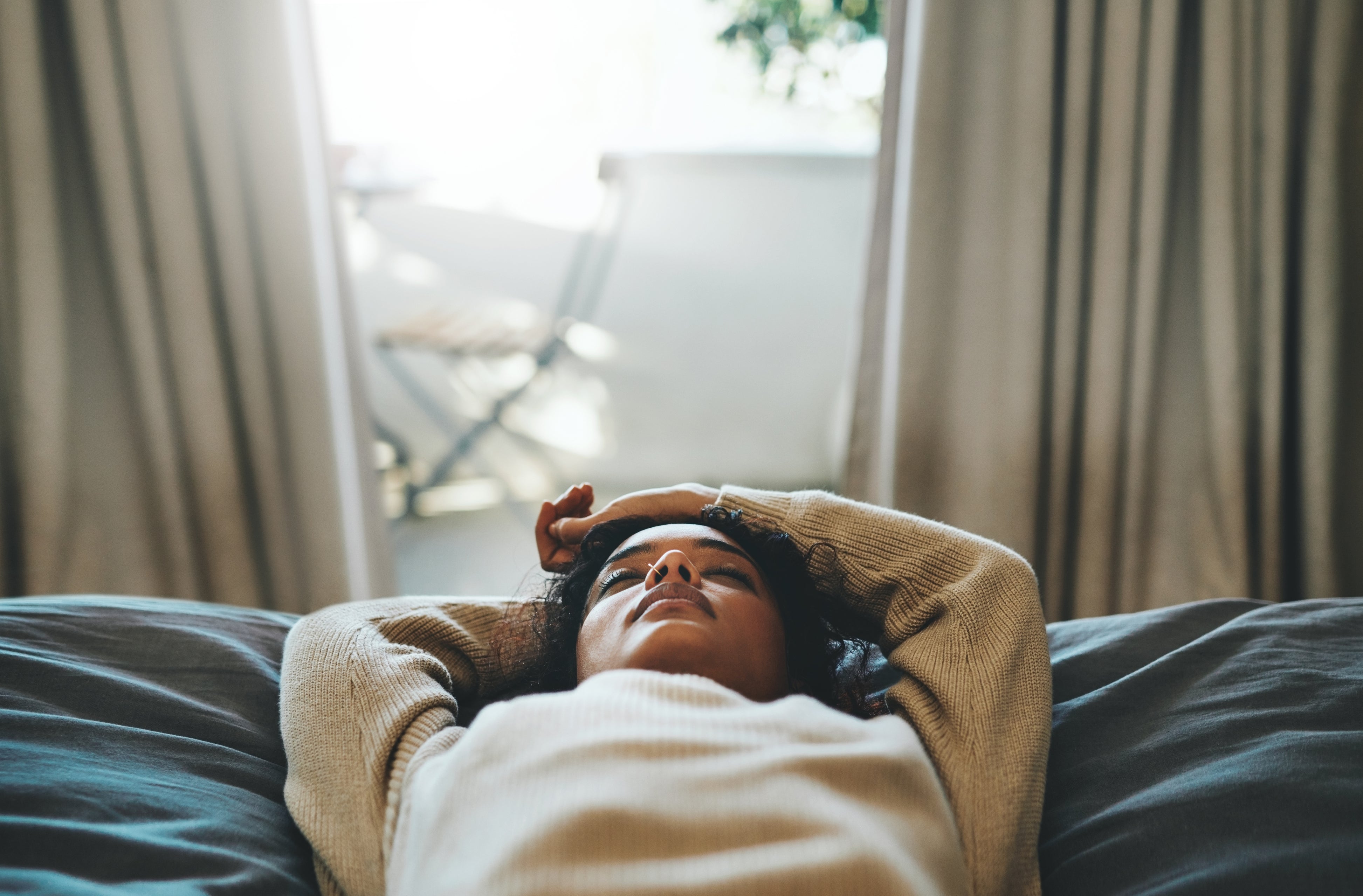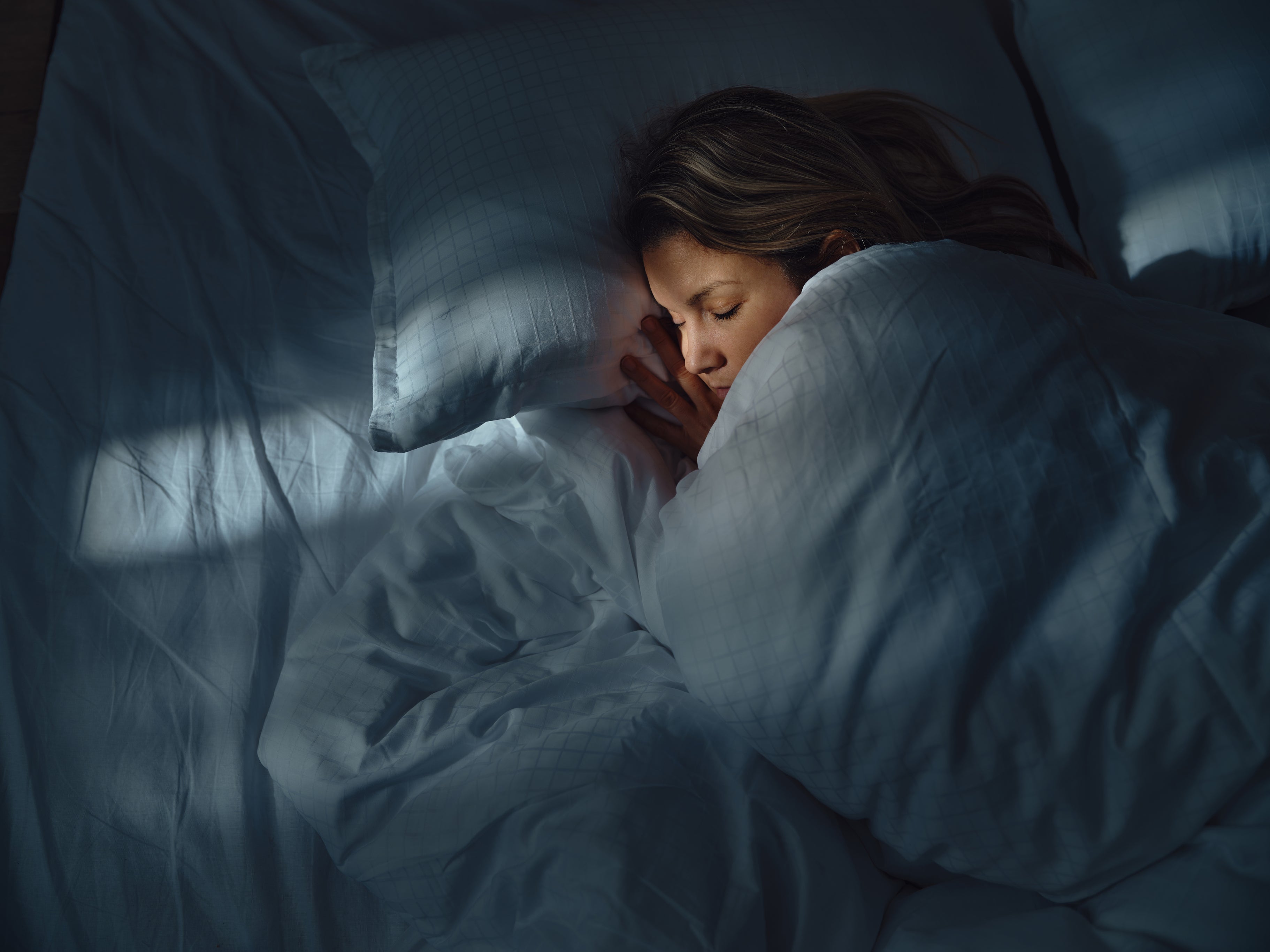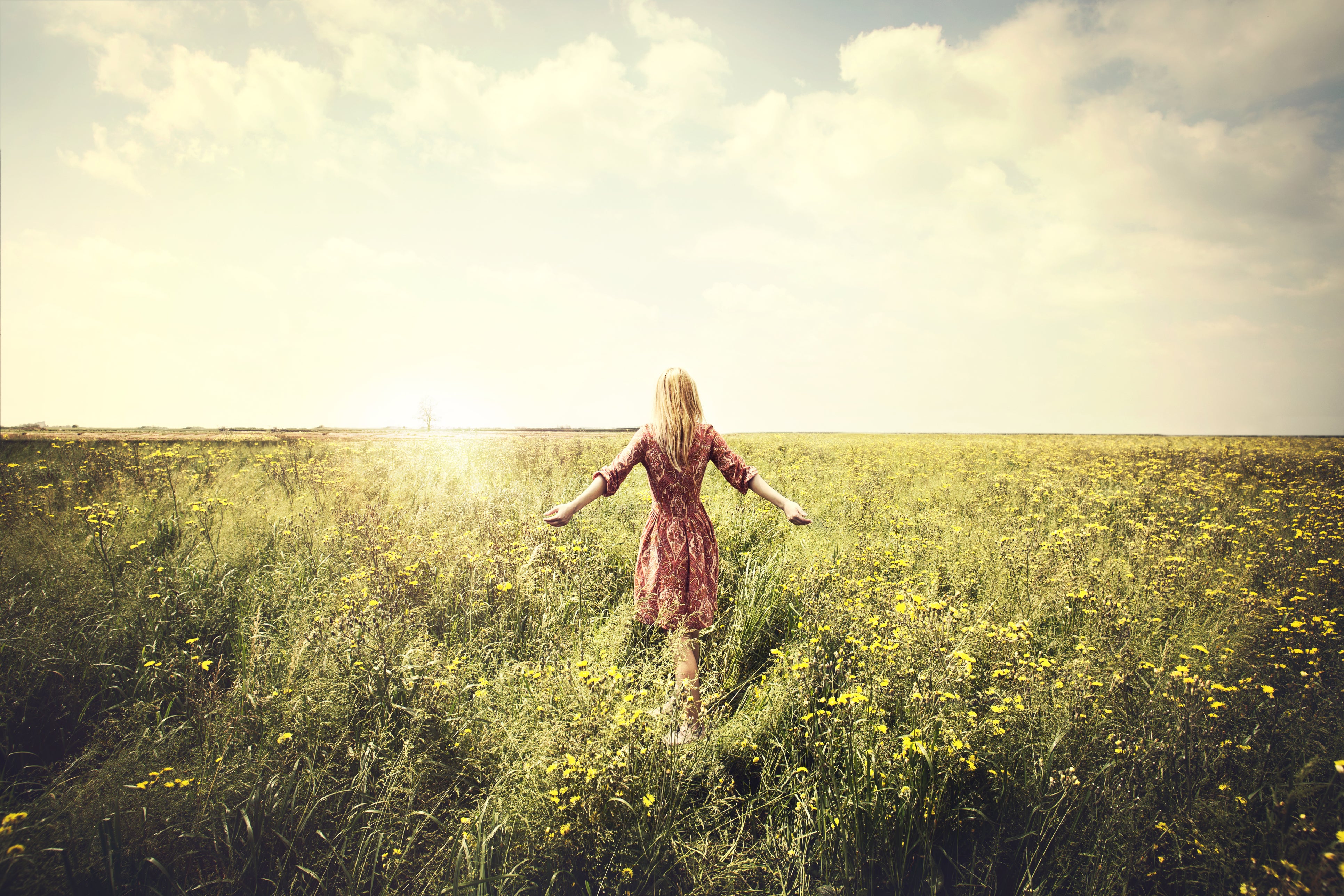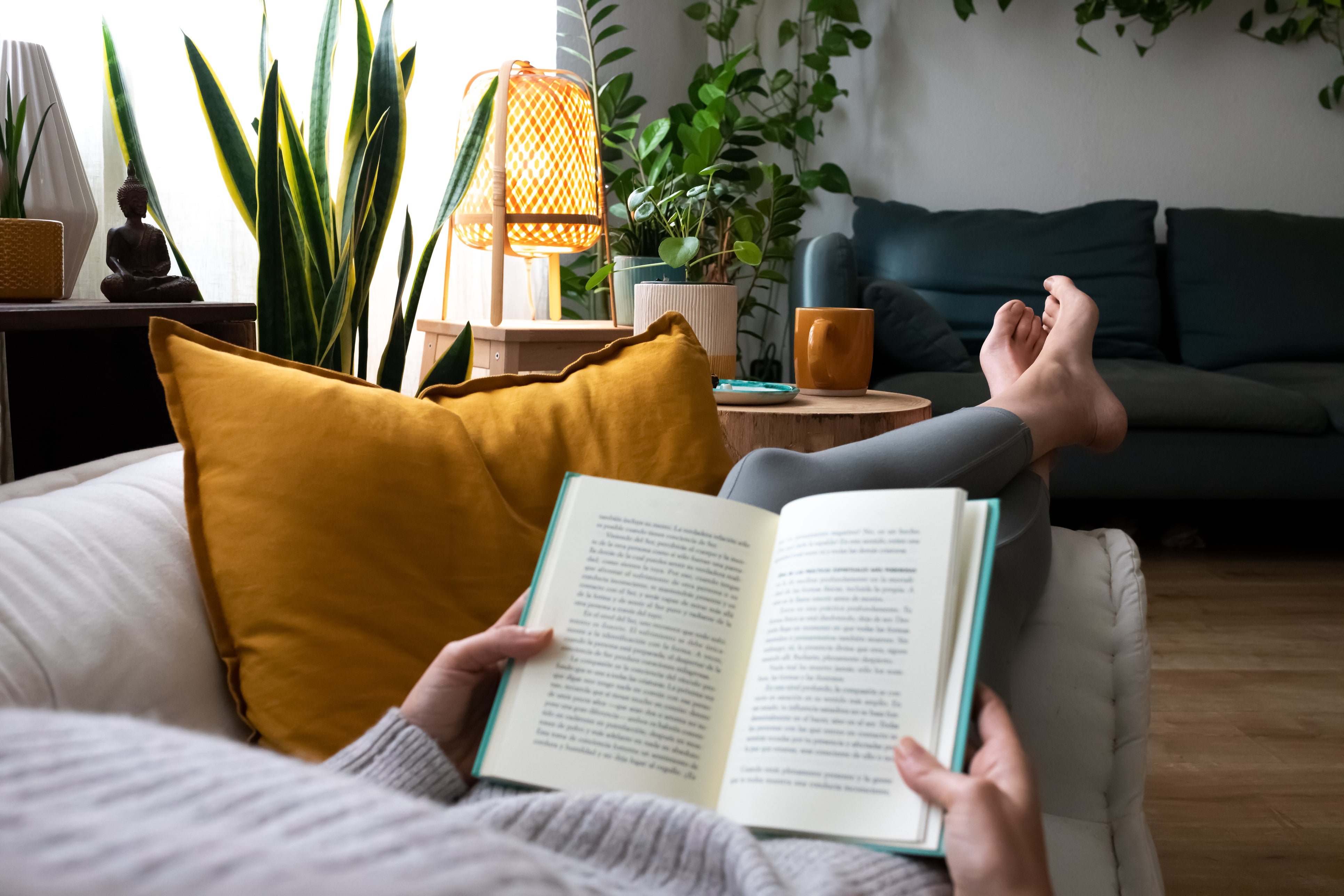World Sleep Day 2024: We need deep rest not sleep – and here’s how to get it
If low energy is getting you down, don’t panic, says Anna Magee, your body is behaving exactly as it should do in winter. But if you are also finding it hard to sleep, it may be because you have lost the ability to rest. The trick? Learn to embrace tiredness and wait for spring to arrive...

There is plenty advice out there about how to jump out of bed at 6am, boost energy, and instigate changes which feel a struggle when it’s rainy, cold and grey out there. But in these conditions, it’s not your imagination – you really do feel more tired when you wake up, even when you get a lot of sleep. One in eight of us exists in a state of total exhaustion during the winter, and studies have also shown that we’re less productive in those months.
But it’s not the perfect night’s sleep you need – it’s rest. Deep, blissful and refreshing rest. Hibernation might feel tempting, but human biological rhythms are more nuanced than that.
“We’re a diurnal species, which means we don’t hibernate,” says Dr Sophie Bostock, a health psychologist and an expert in sleep and circadian neuroscience (thesleepscientist.com). “But we are affected by the light-dark cycle of the sun. Sunlight is the key cue that tells us to be active, so in any environment where we are not getting sufficient bright light, we tend to feel more fatigued.”
Your eyes contain not only rods and cones for image-forming, but also a light receptor called melanopsin, containing intrinsically photosensitive retinal ganglion cells (ipRGCs), explains Dr Frederik Bes, a researcher at the Berlin Institute of Health’s clinic for sleep and chronomedicine. “These cells integrate all the input from our eyes – especially light and dark – and give it to the brain, and that’s how it governs our 24-hour circadian rhythms or body clock. When you don’t get enough natural light in winter, you will be more tired.”
Temperature plays a role, too, says Dr Bostock. “From an evolutionary mechanism, it takes energy to keep yourself warm, so in days gone by, if it was cold, you slept more, because it’s a good way of conserving heat.”

But it’s not always that simple...
In a body of research carried out on two indigenous Argentinian tribes, one that had limited access to electricity and the other that had none, the group that had no electric light were sleeping for about seven hours in the summer and eight and a half hours in the winter. “That’s a good clue that we’re not getting as much sleep as we’re physiologically designed to in the winter,” says Dr Bostock.
Having said that, electricity doesn’t always trump evolution. In the above research, the difference was smaller in the group that had access to electricity, but they were still sleeping for almost an hour longer in the winter.
“Seasonality is ubiquitous in any living being on this planet,” says Dr Dieter Kunz, who co-authored the German research with Dr Bes. “Even though we still perform unchanged over the winter, human physiology is down-regulated with a sense of ‘running-on-empty’ in February or March. In general, societies need to adjust sleeping habits, including length and timing, to season, or adjust school and working schedules to seasonal sleep needs.”

Made to slow down, pushed to speed up
Nice idea, but there’s a problem here. Sleeping longer is rarely an option in the week, nor is being less productive. Bosses and clients don’t demand any less of us in winter – it’s often a time for increased pressure and production, ironically, as the end of the financial year approaches. And we don’t demand any less of ourselves, either, with burnout at an all-time high – a staggering 94 per cent of us reported at least one symptom of it in 2023, according to a survey by Cigna Healthcare.
This is why experts are urging us to prioritise rest this winter. They’re not just talking about a few hours of telly on the sofa (or even just another hour’s sleep), but a sustained and consistent slowing down.
“There’s a difference between doing something relaxing and really relaxing the body,” says Dr Bostock. “We can watch a Netflix series and we will still be churning away, processing events from the day, as well as what we’re consuming. That’s not relaxing. Deep rest is where you cognitively, physically and emotionally switch off.”
Deep rest isn’t a scientific term, but it’s useful in helping us address our need to escape from our latent busyness. “Deep rest is anything that helps you completely switch off emotionally as well as physically,” says Dr Bostock. “That could be deep meditation, prolonged deep breathing, yoga nidra (a type of yogic relaxation) or walking in nature.
“But it could also be connecting with friends, pets, or family, where there is no emotional pressure to be ‘on’, or even just having a long, hot bath.” Practices like these deactivate the sympathetic “fight or flight” nervous system, and activate the parasympathetic nervous system, which is the “rest and digest” process your body needs for true recovery, renewal and reset.
So, what will benefit you most? That depends on the type of deep rest you need, says Dr Saundra Dalton-Smith, a physician and the author of Sacred Rest: Recover Your Life, Renew Your Energy, Restore Your Sanity, which she wrote after a prolonged period of burnout.
“As an internal medicine physician with two toddler kids, I was seeing patients working 60-plus hours a week, thinking: ‘I’m getting eight hours of sleep, but I still feel exhausted.’” With a background in biochemistry, Dr Dalton-Smith started looking at how energy works and how restorative practices can address the different types of energy used.
She says there are seven types of rest: physical, spiritual, creative, social, sensory, emotional and mental. The one you need depends on the type of energy you’ve been expending most at the time.
“In focusing on sleep alone, we’ve got it all wrong,” says Dr Dalton-Smith. “Most people try to fix their chronic lack of energy by getting more sleep, but sleep is only one part of the big picture. It’s only one type of rest. Many of us are going through life thinking we have rested because we have slept, but we’re still exhausted. The result is a culture of high-achieving, high-producing, chronically tired and burned-out individuals.
“Many of us are suffering from a rest deficit, because we don’t understand the power of rest. What we really need is a rest revolution, where we schedule and prioritise rest in our days, but also at times of the year when we really need it.” Now is the time.

Signs you need deep rest – and how to get it
If you have constant exhaustion despite adequate sleep, you may need to identify the type of deep rest you need. Use this guide:
Aches and pains: If you feel discomfort and increasing niggling aches as the day progresses, you may need physical rest. This is one example where actually lying on the sofa and watching some Netflix can help. It could also be helpful to reorganise your workstation so your feet and lower back are supported and your computer is placed at eye height.
Trouble quieting your mind before bed: If you feel physically tired but your mind is racing and wired, you probably need mental rest. Try doing a written brain dump before bed, where you list all the worries and fears brought on by the day.
Feeling overwhelmed and/or unable to concentrate: You may have sensory overwhelm, which is common if you’re on Zoom calls all day or you spend a lot of time listening to music, in meetings, or otherwise engaging more than one of your senses. Get some sensory rest by taking short moments of silence where you can. You can also reduce sensory input by asking for audio-only Zoom calls (or using the phone instead). Try to avoid scrolling your phone before bed, too.
Being drained after interactions: You may also cry easily or be quickly irritated. This could mean you need emotional rest. Emotionally restorative practices include finding a space to express your feelings honestly without fear or shame. Journalling and talking to a trusted friend or partner can help.
You feel uninspired: You may need creative rest, especially if you’ve been “sending” a lot of creative or complex work. Watching TV won’t help. Try getting into nature, especially beautiful nature, going to a gallery, or reading fiction that captures your mind – whatever inspires you.
Isolating more and more: Many of our interactions with colleagues and acquaintances use up our social energy, because we’re busy being “on” to create a good impression. Social rest is about spending time with people who accept and encourage you and who you can be yourself with. Just having a good laugh and some fun helps, too.
Feeling trapped, helpless or defeated: You might need spiritual rest. Of course, not everyone is a believer, so a bit of prayer won’t be for everyone. A short (secular) mindfulness meditation practice could help activate the “rest and digest” parasympathetic nervous system, which can help reduce pain, alleviate depression, increase energy and reduce anxiety. Even 10 minutes daily works if it’s consistent.
Use restquiz.com to help identify the type of rest you need.
Packed full of practical advice and simple tips and tricks that you can easily apply to your own routine, The Independent’s Living Well newsletter will help you start 2024 in the best way. Sign up here.
You can also read our review of the best mattresses to help you rest up






Join our commenting forum
Join thought-provoking conversations, follow other Independent readers and see their replies
Comments